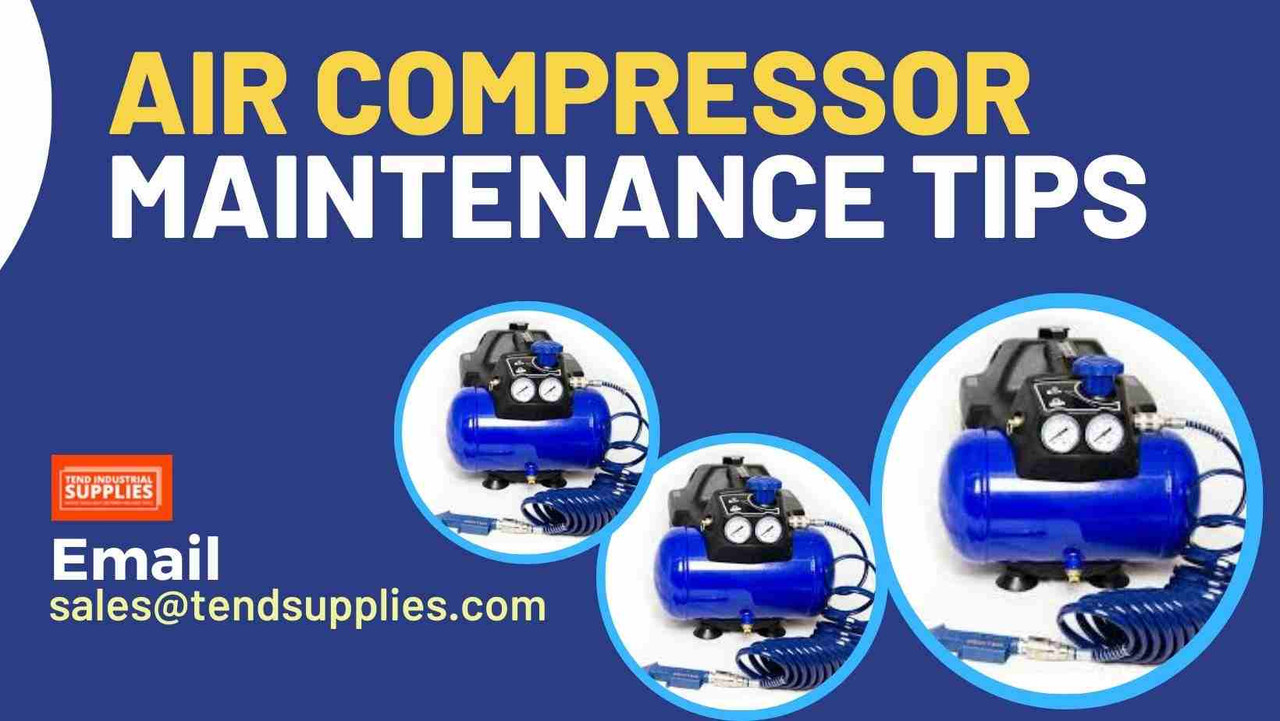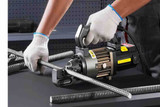Air Compressor Maintenance Tips
Maintaining your air compressor is essential for ensuring its longevity and efficiency. Regular maintenance helps prevent breakdowns and ensures that your air compressor operates at optimal performance. This comprehensive guide will cover the essential maintenance tips for air compressors, including cleaning, oil changes, air filter replacements, and troubleshooting common issues.
Key Takeaway From This Article
Regular maintenance is crucial for the longevity and efficiency of your air compressor. Following these maintenance tips ensures that your air compressor operates smoothly and reliably, saving you time and money in the long run.
Importance of Air Compressor Maintenance
Extending Lifespan and Efficiency
Regular maintenance of your air compressor can significantly extend its lifespan. Like any other machine, an air compressor has moving parts requiring lubrication, cleaning, and periodic checks to function correctly. By performing routine maintenance, you can avoid costly repairs and ensure your compressor runs efficiently.
Preventative Maintenance
Preventative maintenance is crucial in catching potential problems early. By inspecting and servicing your air compressor regularly, you can identify and address issues before they become major problems. This proactive approach not only saves money but also minimizes downtime.
Essential Air Compressor Maintenance Tips
Regular Cleaning
Keeping your air compressor clean is fundamental. Dust and debris can accumulate and cause the machine to overheat or malfunction. Here's how to keep your compressor clean:
- Exterior Cleaning: Wipe down the exterior of the compressor regularly to remove dust and dirt.
- Cooling Fins: Clean the cooling fins to ensure proper heat dissipation. Use compressed air to blow out any debris.
- Air Intake Vents: To maintain airflow, make sure the air intake vents are free of obstructions and clean them regularly.
Oil Changes
If your air compressor is oil-lubricated, regular oil changes are essential for running the motor smoothly. Over time, dirt and debris can contaminate the oil, reducing its effectiveness.
- Frequency: Check the manufacturer's recommendations for oil change intervals. Typically, oil should be changed every 500-1000 hours of use.
- Procedure: Drain the old oil, replace the oil filter if necessary, and refill with the recommended type and amount of oil.
- Oil Type: Always use the type of oil specified by the manufacturer to avoid damage to the compressor.
Air Filter Replacement
The air filter prevents dust and debris from entering the compressor. A clogged filter can reduce efficiency and cause the compressor to overheat.
- Inspection: Check the air filter regularly and replace it if it appears dirty or clogged.
- Replacement: Depending on usage, replace the air filter every 3-6 months. Refer to the manufacturer's instructions for specific guidelines.
Draining the Tank
Moisture can accumulate in the air compressor tank, especially in humid environments. Draining the tank regularly prevents rust and corrosion.
- Frequency: Drain the tank daily or after each use to remove accumulated water.
- Procedure: Open the drain valve at the bottom of the tank and allow the water to drain completely.
Checking for Leaks
Air leaks can reduce the efficiency of your air compressor and increase energy consumption.
- Inspection: Listen for hissing sounds and use soapy water to check for leaks around fittings and connections.
- Repair: Tighten any loose fittings and replace damaged hoses or seals.
Belt Tension and Condition
For belt-driven air compressors, maintaining the correct belt tension is crucial for efficient operation.
- Inspection: Check the belt for signs of wear, such as fraying or cracking.
- Adjustment: Adjust the belt tension according to the manufacturer's specifications. A properly tensioned belt should have a slight give when pressed.
Safety Valve Testing
The safety valve is a critical component that prevents over-pressurization of the tank.
- Testing: Test the safety valve regularly by pulling the ring to ensure it releases air when activated.
- Replacement: If the valve does not function properly, replace it immediately.
Electrical Connections
Loose or damaged electrical connections can cause the compressor to malfunction or pose a safety hazard.
- Inspection: Regularly inspect all electrical connections and wires for signs of wear or damage.
- Repair: Tighten any loose connections and replace damaged wires.
Storage and Environment
Proper storage and environmental conditions are essential for the longevity of your air compressor.
- Location: Store the compressor in a clean, dry place away from direct sunlight and extreme temperatures.
- Ventilation: Ensure adequate ventilation around the compressor to prevent overheating.
Troubleshooting Common Air Compressor Issues
Despite regular maintenance, you may need help with your air compressor. Here are some common problems and their solutions:
Compressor Won't Start
- Check Power Supply: Ensure the compressor is plugged in and the power switch is on.
- Inspect Circuit Breaker: Reset the circuit breaker if it has tripped.
- Thermal Overload: Allow the compressor to cool down if it has overheated.
Reduced Air Pressure
- Check for Leaks: Inspect for air leaks and repair them.
- Clean Air Filter: Replace a dirty or clogged air filter.
- Inspect Valves: Check the intake and exhaust valves for blockages.
Overheating
- Clean Cooling Fins: Ensure the cooling fins are clean and debris-free.
- Check Oil Level: Maintain the proper oil level in oil-lubricated compressors.
- Improve Ventilation: Ensure adequate airflow around the compressor.
Excessive Noise
- Check for Loose Parts: Tighten any loose bolts or fittings.
- Inspect Bearings: Replace worn or damaged bearings.
- Belt Tension: Adjust the belt tension if necessary.
Oil Leaks
- Tighten Fittings: Ensure all oil line fittings are secure.
- Replace Seals: Replace any worn or damaged seals.
Frequently Asked Questions (FAQs)
1. How often should I change the oil in my air compressor?
Oil should typically be changed every 500-1000 hours of use. For specific guidelines, check the manufacturer's recommendations.
2. How do I know if my air compressor's air filter needs replacing?
Inspect the air filter regularly. If it appears dirty or clogged, it’s time to replace it. Generally, air filters should be replaced every 3-6 months.
3. What should I do if my air compressor won't start?
Ensure the compressor is plugged in and the power switch is on. Check the circuit breaker and reset it if necessary. If the compressor has overheated, allow it to cool down.
4. How can I prevent my air compressor from overheating?
Keep the cooling fins clean, maintain proper oil levels, and ensure adequate ventilation around the compressor.
5. How do I check for air leaks in my compressor?
Listen for hissing sounds and use soapy water to check for leaks around fittings and connections. Tighten loose fittings and replace damaged hoses or seals.
Call to Action
Ensure your air compressor is always in top condition with regular maintenance. For all your air compressor needs, including maintenance supplies and replacement parts, visit Tend Industrial Supplies. If you have any questions or need assistance, please contact us at sales@tendsupplies.com. Keep your tools running smoothly and efficiently!









